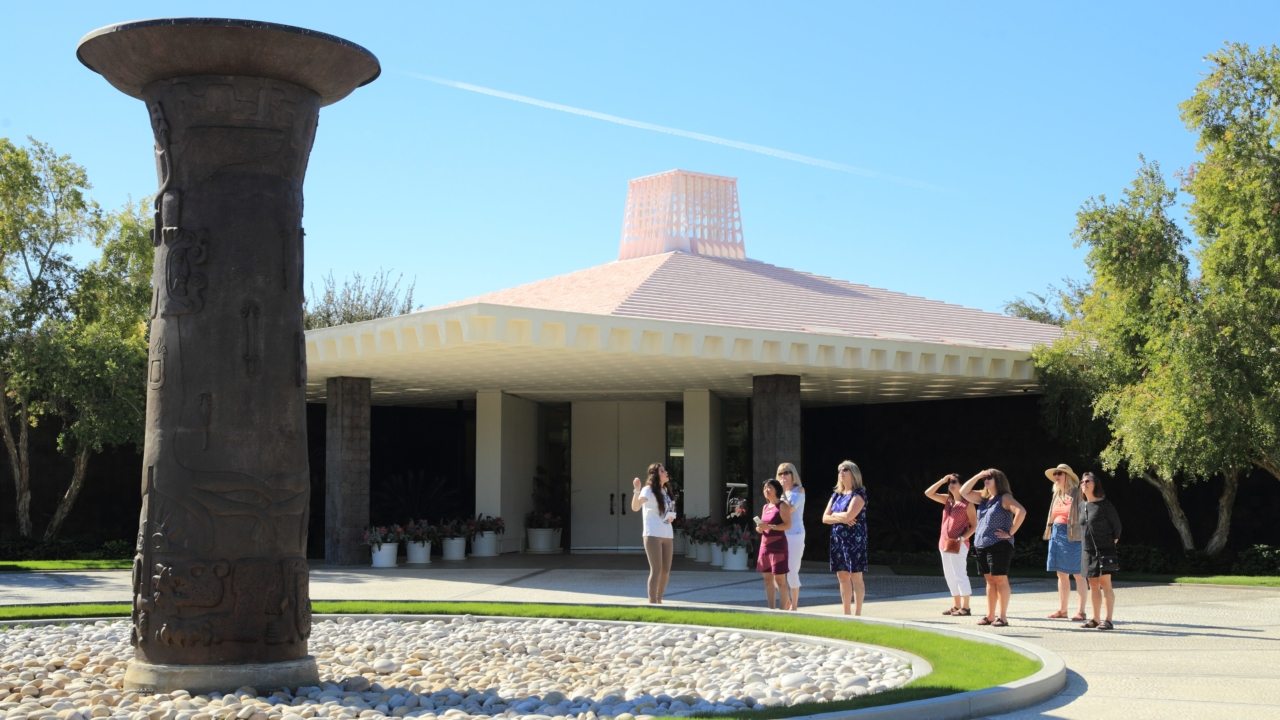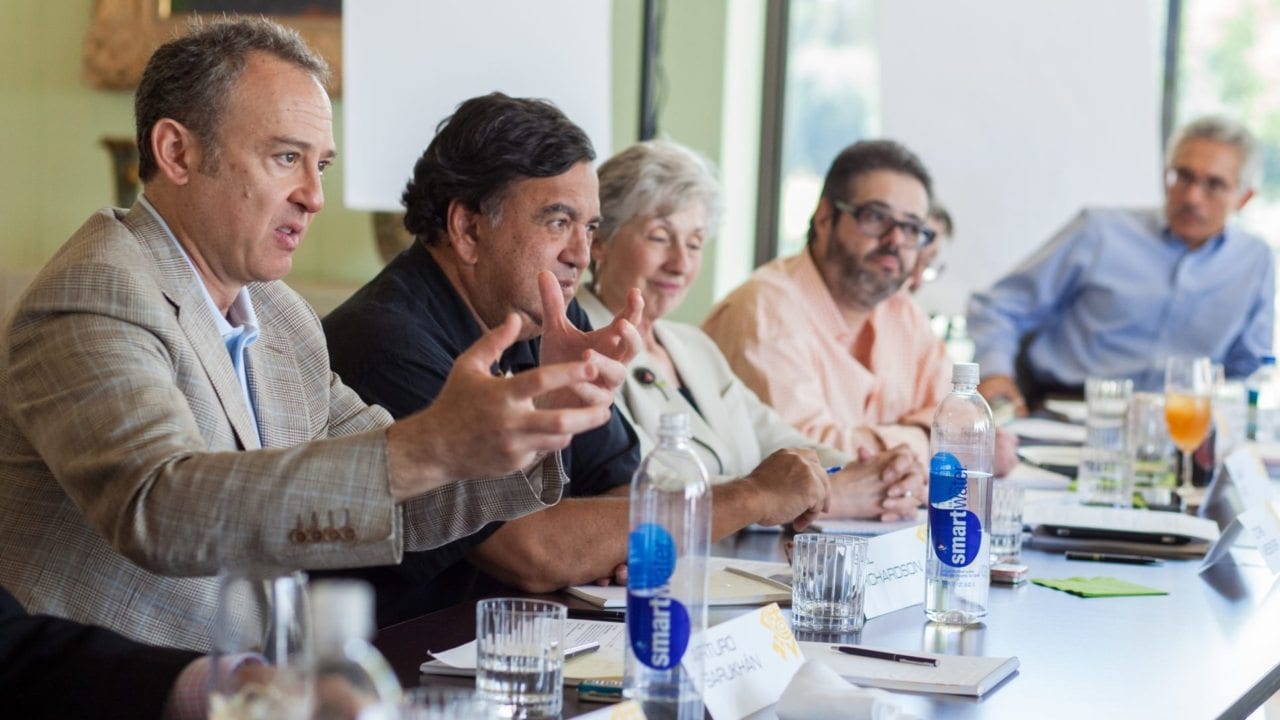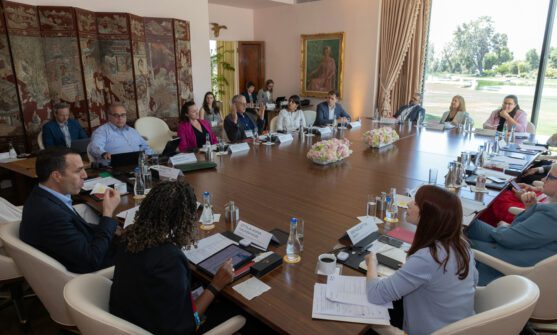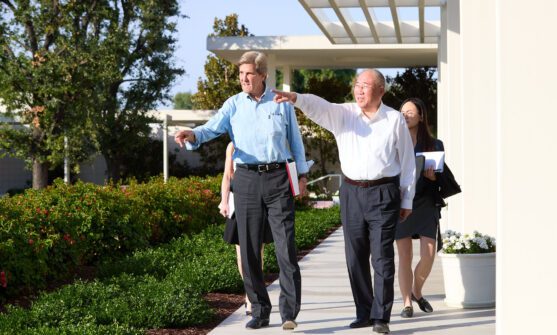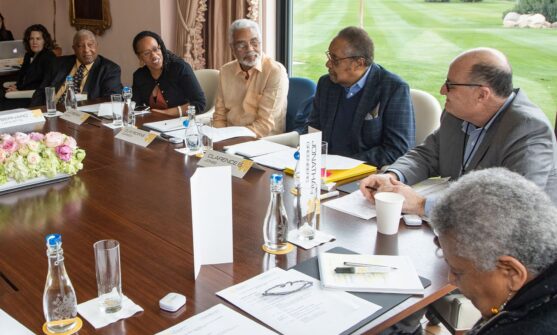Sunnylands, National Academy of Sciences retreat yields recommendations for scientific journals
Wednesday, May 24, 2017
Topics: Retreat News, Science, Strengthening Democratic Institutions
A cadre of some of the nation’s leading scientists, academics and editors of scientific journals are calling for changes in the way author contributions to journal articles are handled, saying greater transparency and uniformity is needed to make sure that scientists are being properly credited, or held accountable, for their work.
“Despite the importance of scientific authorship to the professional prospects of scientists, the concept of ‘authorship’ remains clouded,” the group wrote in an 8-page report published on bioRvix.org. The web site provides authors a platform to garner feedback from the scientific community before their work is submitted to scientific journals.
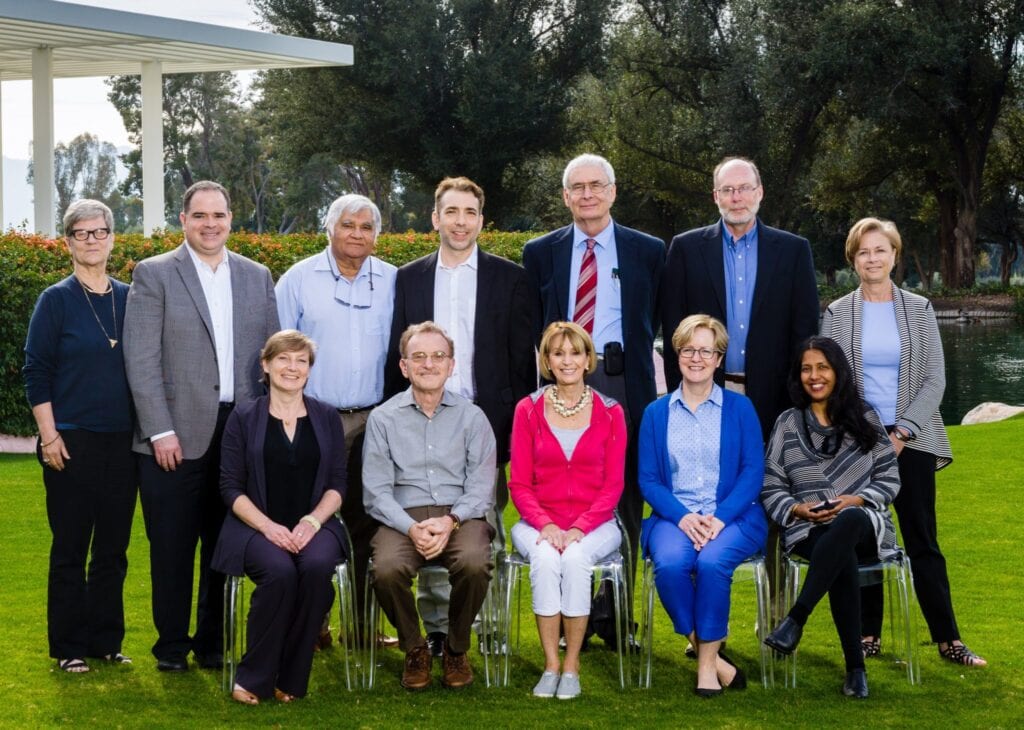
Front row (left to right): Véronique Kierner, Randy Sheckman, Marcia McNutt, Monica Bradford, and Sowmya Swaminathan. Back row (left to right): Kathleen Hall Jamieson, Bob Howard, Inder Verma, Michael Magoulias, Peter Stang, Brooks Hanson, and Barbara Kline Pope.
The Annenberg Retreat at Sunnylands and the National Academy of Sciences asked more than a dozen scholars, scientists, and journal editors to examine the authorship issue in February 2017 at the former winter home of ambassadors Walter and Leonore Annenberg in Rancho Mirage, Calif. The retreat was by convened by David J. Lane, president of The Annenberg Foundation Trust at Sunnylands, and Marcia McNutt, president of the National Academy of Sciences. It was organized by Kathleen Hall Jamieson, Sunnylands program director and director of the Annenberg Public Policy Center at the University of Pennsylvania, and Barbara Kline Pope, executive director for communications at the National Academy of Sciences.
Among those in attendance were Monica Bradford, executive editor of Science; Jeffrey Drazen, editor-in-chief of the New England Journal of Medicine; Emilie Marcus, editor-in-chief of Cell Press; and Randy Schekman, professor of molecular and cell biology at the University of California, Berkeley.


Retreat participants convened their talks on authorship issues in the former winter home of Ambassadors Walter and Leonore Annenberg in Rancho Mirage, Calif.
While publication of one’s research is an important measure of productivity for scientists of all disciplines, the Sunnylands retreat participants note in their report that authorship contributions in journal articles can be misleading and are not governed by a consistent set of procedures. For example, the order of author attributions does not always convey a hierarchy of contributions to a piece of scholarly work. Nor can the author list be relied upon to detail the contributions any particular scientist made to a study.
Additionally, the report cites the existence of harmful publishing practices, such as deleting the names of some scientists, in this case known as “ghost authors,” whose contributions might raise the specter of a conflict of interest. Conversely, “conscripted authors” are scientists who made no contributions to a particular piece of work, but whose names were used without their knowledge to increase the likelihood of publication.
To safeguard the integrity of research, the Sunnylands retreat participants asked scientific publications to adopt four best practices currently in use by leading journals. They also made recommendations for other stakeholders, such as universities and scientific societies.
The recommendations for journals are to:
• Set standards to specify the contributions that warrant authorship, outline the responsibilities of corresponding authors, and establish methods for capturing author contributions in journal metadata.
• Make corresponding authors responsible for managing the contributions of an entire author group, including verification of all data, materials and coding.
• Commit to the use of CRediT (Contributor Role Taxonomy) as the best available method for embedding authors’ contributions in journal metadata.
• Encourage authors to adopt ORCID and other standard digital identifiers for the research community.
For other stakeholders, the recommendations encourage:
• Universities and research institutions to develop, post, distribute and regularly review their policies on authorship.
• Funding agencies to adopt ORCID to encourage widespread acceptance of a unique digital identity for scholars.
• Scientific societies to hold special sessions on the topic of integrity in authorship at scientific meetings.
Additionally, to help detail author contributions beyond what is available through CRediT, the Sunnylands retreat participants encouraged the creation of a cost-free, web-based tool that would foster experimentation in authorship transparency and accountability.
The authorship retreat followed a Sunnylands retreat in February 2015 on ways to better protect the integrity of science. That retreat, convened by the late Ralph J. Cicerone, then president of the National Academy of Sciences, generated recommendations published in Science in the article, “Self-correction in science at work.”

